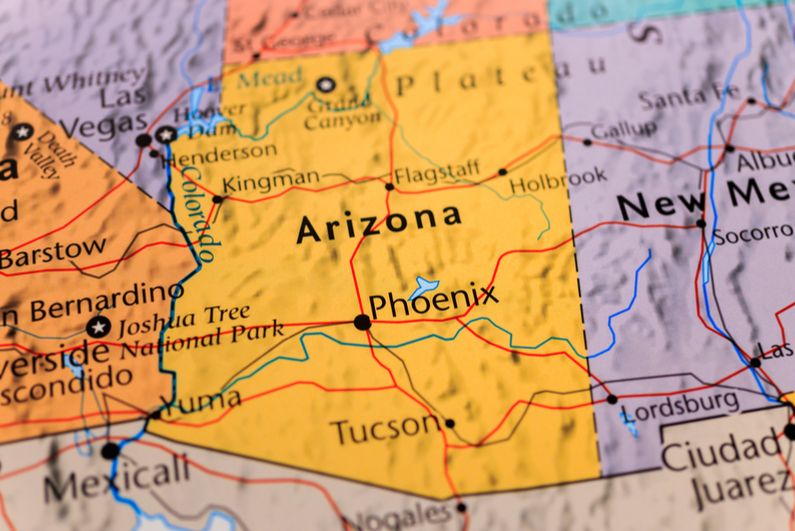30-second summary
- Arizona traditionally has been resistant to gambling
- For many years, horse and dog racing were the only forms of gambling
- Dog racing is no longer legal since 2018
- There are 24 tribal gambling facilities in the state
- A sports betting bill has been put in front of the legislature
Gambling in Arizona
Traditionally, Arizona has had very strict gambling laws. The 1988 Indian Gaming Regulatory Act did allow tribal casinos in the region. The main forms of legal gambling for many years in the state were dog racing and horse racing.
Some lottery games were made legal in 1980 by a public vote. However, as of 2018, dog racing is no longer legal in Arizona. For over 70 years, there were five tracks in operation until a bill banning the sport was passed in June 2018. The last ever dog race in Arizona took place at the Tucson Greyhound Park.
Horse racing is still legal, and two tracks are in operation, Turf Paradise in Phoenix and Rillito Park in Tucson. They have on-site gaming machines to help generate enough revenue to keep their doors open.
There are 23 casinos in the state, most of which are in the southwest area of the state. They can only operate on tribal reservations, and there are limits on the number of slot machines any one facility can have.
You need to be at least 21 years old to gamble at these establishments. They usually are open for business on a 24/7 basis. The 23 casinos have more than 180,000 slot machines and up to 400 table games.
Calls for sports betting
Despite Arizona long having an anti-gambling stance, many in the state support the legalization of sports betting. The major issue lies with the state’s tribes. They effectively hold a monopoly on gambling and introducing sports betting to non-tribal operators would lead to a significant decrease in their revenues.
Under the law, the tribes have exclusive rights to certain types of gambling. In return, they give a chunk of their revenues to the government. Breaking up the tribal monopoly would cause the state to lose about $80m (£60.7m) a year.
It would also enable the tribes to open more casinos as they please. The compact has been in place since 2002 and has been amended a couple of times. One amendment gave permission to the tribes to have more extensive offerings at their facilities in return for not building any more casinos in the metropolitan area in Phoenix.
Another amendment has been proposed that would give the tribes the first crack at opening up sportsbooks. However, not many tribes in the US seem to be overly keen on sportsbooks. They are expensive to set up and maintain, and they have small margins.
New developments
A new bill being put forward in the state would legalize sports betting at physical locations. Senator Sonny Borrello is the bill’s chief proponent. Betting would not be permitted on college events. It would allow each of the 16 federally recognized tribes in the state to open a sportsbook.
Sports betting would also be allowed outside of casinos. Tribes would be able to operate self-service terminals or kiosks at other premises which have liquor or private club licenses, which would still have to be on tribal land. The tribes could go into a partnership with non-tribal partners to offer the sportsbooks.
There would be a tax rate of 6.75% on the adjusted gross revenue if this bill becomes law. This is the same rate as in Nevada, the current lowest tax rate for sports betting revenues in the country.
The Arizona Department of Gaming would be the chief regulator to ensure that all the proper rules and regulations are being met. There is no reference to mobile or online sports betting in the bill, and there is no provision for paying an integrity fee to major sports leagues.
The only other state to date to offer sports betting through a tribal regulation is in New Mexico. The Santa Ana Star Casino close to Albuquerque was the first sportsbook to open in the state as a result of the tribe’s compact with the government.




